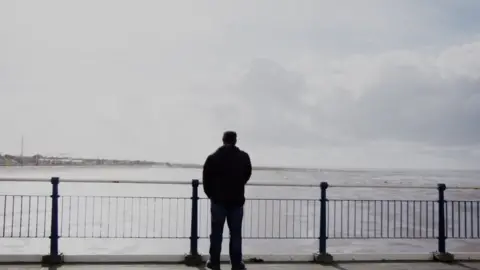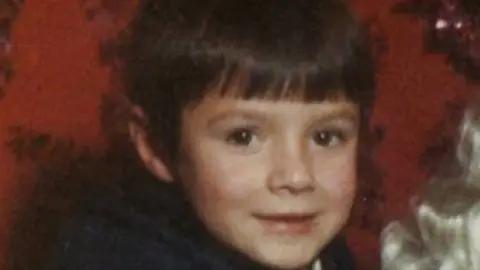Sex abuse compensation rules 'must change'
 BBC
BBCRules that mean some victims of childhood sex abuse are denied compensation must be changed, MPs have told the Victoria Derbyshire programme.
Those with an unspent criminal conviction or victims deemed to have "consented" to abuse despite being a child, are among those denied payouts.
Victims also have to claim within two years of reporting abuse, described by MPs as an "unrealistic timeframe".
The Ministry of Justice has launched a review into the compensation system.
The guidance contains a number of exemptions. These include victims who may have been groomed into performing sex acts online but not physically assaulted.
It also states that victims of child sexual abuse can be disqualified from the scheme on the basis that "consent 'in fact' is different from consent 'in law'."
Even in cases involving under-16s, it says "where the sexual activity is truly of the applicant's free will no crime of violence will have occurred".
The report from the cross-party group of MPs for adult survivors of sexual abuse, said many of the 400 survivors it consulted found applying to the Criminal Injuries and Compensation Authority (Cica) "traumatising and complicated".
"Too often, Cica acts as a second trial for the survivor, placing the onus on them to prove their case once more," it said. "This compounds a complicated, onerous process."

'We'll never forget what he did to us'

"David" and his younger brother were both sexually abused by their older half-sibling when they were children. His younger brother was awarded £11,000 in compensation, but David was refused because of a decades-old conviction for conspiracy to commit robbery.
"He was like a bogeyman in your childish, nightmarish dreams.
"As I got older the abuse made me feel quite worthless and dirty. I didn't feel like normal kids did and in a way I tried to destroy myself as well. By getting in trouble with the police I felt a bit like vermin really, like people see rats.
"A lot of nights I would drift off to sleep thinking about my childhood and how it had basically led to where I was in that prison cell. I turned my life around when I came out.
"When I found out he had been abusing my younger brother, it destroyed me. We'll never forget what he did to us, we'll be living with that for the rest of our lives.
"Money, no matter how much they give me, would never take the thoughts and nightmares out of my head during the day and the night.
"It would help, but in a way, more than the money, it would signify that the actual government are accepting that the way you've turned out - you'll end up getting in trouble with the police, you'll end up how a lot of people do, who've been abused."

Ministry of Justice figures, released in response to a written Parliamentary question earlier this month, revealed how many victims have had an award withheld.
In 2018-19, of 4,972 resolved child sexual abuse cases, 111 victims were denied due to unspent convictions, while 52 people were denied because the time limit had been exceeded.
In 2017-18, of 5,619 cases, 140 were denied due to unspent convictions while it was withheld in 411 cases due to the time limit.
The average payment to victims in January this year was £13,130 for male victims and £12,758 for female victims.
The MPs say the government should publish a revised compensation scheme "without delay" including measures to:
- abolish the unspent convictions rule for survivors of child sex abuse
- abolish the time limit for application for compensation for sex abuse and violent crimes
- extend the definition of violent crime and scheme eligibility to include non-contact forms of child sexual abuse
- recognise that children cannot consent to their sexual abuse
An unspent criminal conviction is one that remains on someone's record, as they are considered still in the "rehabilitation period". For sentences of over four years, a conviction is never "spent".
Sarah Champion MP said it was a "scandal" the scheme had not yet been reformed.
"The whole scheme needs comprehensive reform so that victims and survivors are put at the centre of the process because, right now, it is all about saving the government money not supporting people to rebuild their lives shattered by crime."
The report also found seven in 10 survivors said they had not been given appropriate support when attending court as a witness, and two out of five had not been given the opportunity to give evidence remotely or behind a screen.
Three out of four said they were not informed about their abuser's parole or the process involved.
A Ministry of Justice spokesperson said it was "vital" that victims of child sexual abuse received every support possible to recover from their ordeal.
"We have increased funding for emotional and practical support twice this year, and the total amount for victims has nearly doubled since 2013," the statement said.

